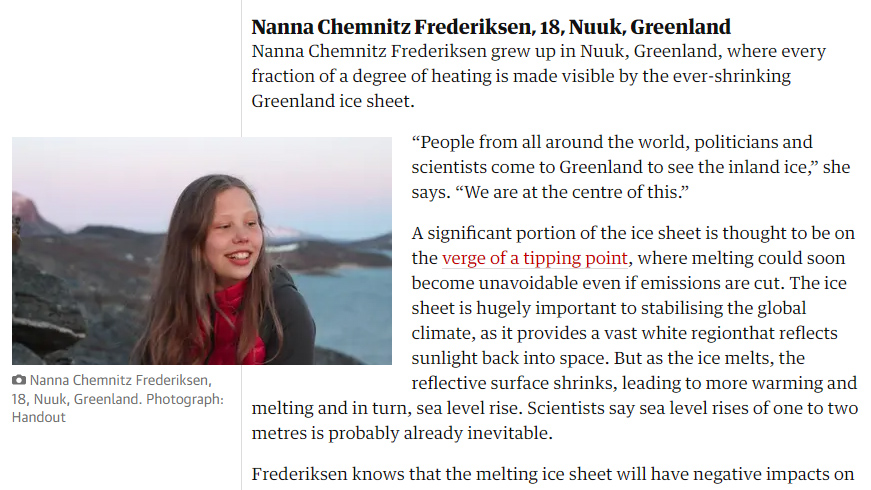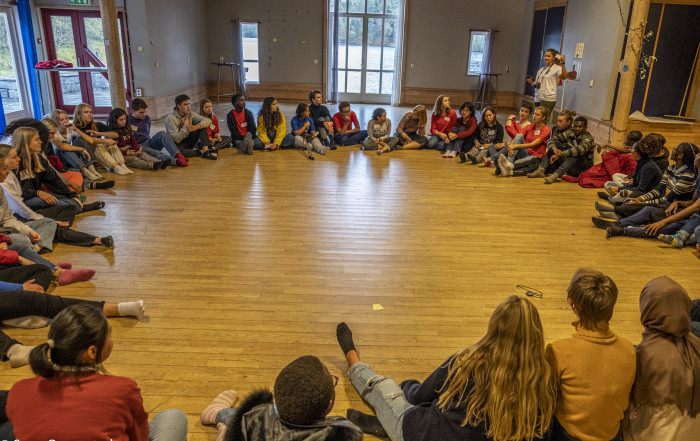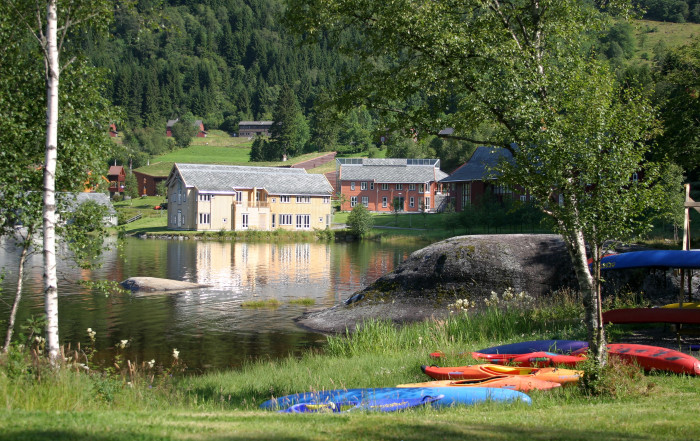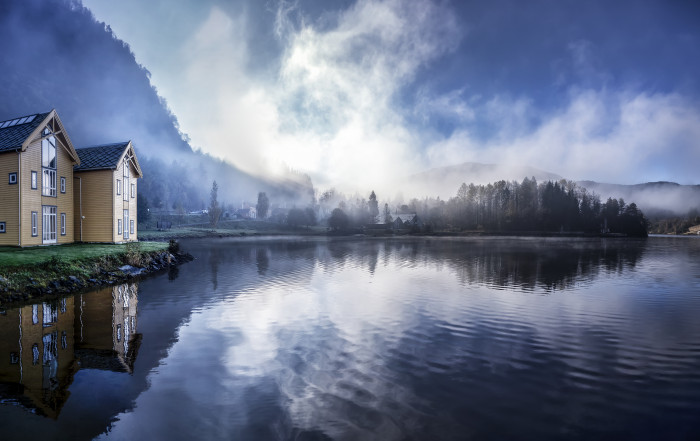“People from all around the world, politicians and scientists come to Greenland to see the inland ice,” she says. “We are at the centre of this.”
A significant portion of the ice sheet is thought to be on the verge of a tipping point, where melting could soon become unavoidable even if emissions are cut. The ice sheet is hugely important to stabilizing the global climate, as it provides a vast white region that reflects sunlight back into space. But as the ice melts, the reflective surface shrinks, leading to more warming and melting and in turn, sea level rise. Scientists say sea level rises of one to two metres is probably already inevitable.
Frederiksen knows that the melting ice sheet will have negative impacts on communities across Greenland, especially in northern settlements such as Qaanaaq where permafrost melting is destabilizing homes and roads and impacting how fishers and hunters operate.
But her real concern lies on the impact it will have globally. “I am not so scared of what the effects of the melting of ice in Greenland will be,” Frederiksen says, “It scares me what effect it can have for the rest of the world.”
Latest News
Human Rights Education by the RAFTO Foundation
2009 Rafto Prize winner Malahat Nasibova with students Theresa Aarhus, Vilde Mørch Hobæk and Lene Mortensen from RAFTO provided HR awareness training for our students on Monday September 30th. They visited [...]
Vacancy – Rektor
Rektor (Head) UWC is a global education movement uniting people, nations and cultures for peace and a sustainable future. UWC Red Cross Nordic, established in 1995, is situated in Flekke, Fjaler Municipality 150km [...]
Exciting Job Opportunities at UWC RCN
Three exciting job opportunities have arisen at the College. Please follow this link for more information.




